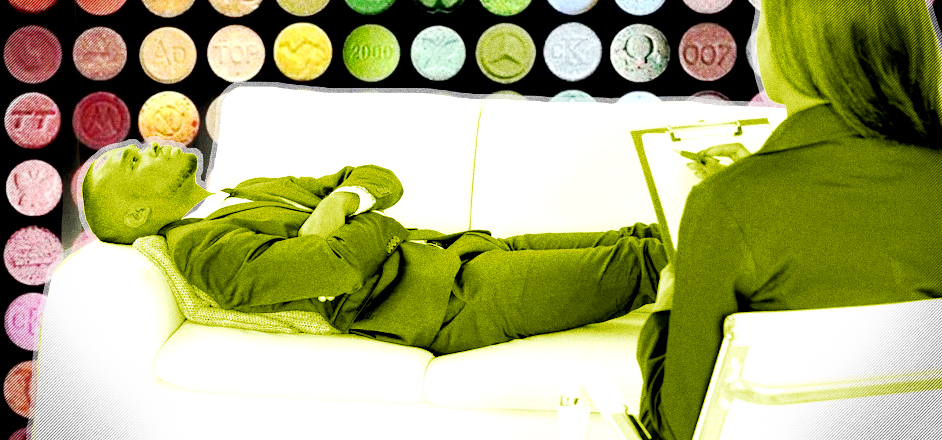They've risked prison so other people can be ecstatic.
Taylor and Casey (not their real names) work with an illegal street drug that wipes away anxiety and terror felt by shellshocked soldiers and rape survivors — in one simple dose.
Taylor's done this for five years; Casey for two. They give out MDMA — once called ecstasy — in their living rooms and watch miracles happen.
Hundreds of other people do this work underground. It's a scary way to make a living, since they're all dealing with a drug that could put them in prison for years if they're caught. They have to lie about where they get money. They live so secretively they don't want details about themselves printed here, even down to their genders. Last week, they were both ecstatic: the government is starting to see things their way.
"Breakthrough status!" Casey cheered.
The Food and Drug Administration ruled MDMA therapy is officially a "breakthrough" treatment for post-traumatic stress disorder, which 7 percent of Americans will suffer from at some point in their lives. Breakthrough means, to the FDA, that "the drug may demonstrate substantial improvement over existing therapies." The FDA will now speed its review of the treatment. It might be legal as early as 2021.
"I didn't need to be convinced that this was absolutely a breakthrough, powerful approach, but it's nice to have an organization with the power of the FDA recognize that fact," explains Taylor.
In the scientific studies run by the Multidisciplinary Association for Psychedelic Studies, some of which took place in Boulder, more than 100 people with PTSD were given MDMA therapy three times. A year later, two-thirds no longer had PTSD. No other treatment comes close.
If and when MDMA therapy becomes legal, it'll be highly regulated. You'll have to get a doctor's prescription and do it in a room with a trained therapist.
This will make it safer. Today, in the unregulated world of underground therapy, the sessions are usually safe, and can be extremely helpful for everything from fighting couples to anorexia to existential angst, but sometimes they get hairy. Therapists combine MDMA with less predictable drugs, like LSD or psilocybin, and a client or two has freaked out and wanted to jump off the roof. A few therapists have their clients get naked and give them a massage, which is creepy and which Taylor says is unethical.
Both Taylor and Casey are preparing for the opportunity to go legit. Even though Taylor currently makes $1,000 per session, they might quit working illegally, in part to avoid prison between now and 2021, and in part so that Taylor can focus on getting a therapy degree. Casey has a degree, and is hoping to open an MDMA therapy clinic.

Their lives might follow the path of so many marijuana growers and dealers, who for decades risked prison for weed, a drug they knew did more good than harm. Since 2012, many illegal ganjapreneurs have become wealthy business people, and today most Americans agree marijuana is a medicine.
Taylor and Casey both say that, even if MDMA therapy stayed illegal forever, they'd keep doing their work, no matter the risks. That's how much they believe in it. But, says Taylor, "if there's the prospect of making a decent living, I'm not going to spit on it."



Leave a Reply
You must be logged in to post a comment.